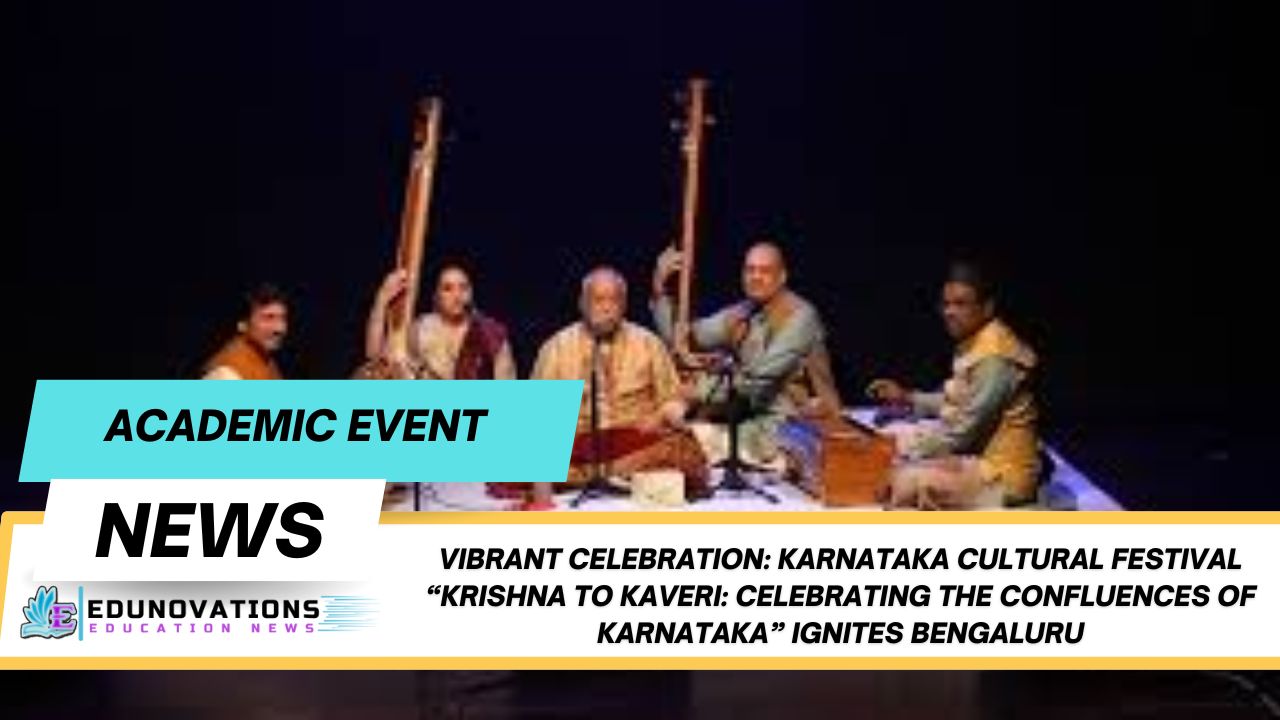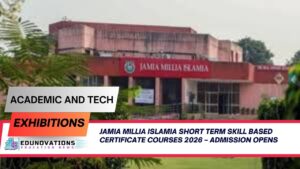Experience the dynamic Karnataka cultural festival “Krishna to Kaveri: Celebrating the Confluences of Karnataka” – a vivid exploration of Karnataka’s heritage, rivers and arts.
On the crisp morning of 1 November 2025, at the Azim Premji University (APU) campus in Bengaluru, the air filled with drums, folk chant and colour as the much‑anticipated two‑day celebration of the region’s heritage got underway. The immersive festival, “Krishna to Kaveri: Celebrating the Confluences of Karnataka”, was conceived to unite the many streams of the state’s cultural life—and in doing so, gave shape to the long‑tail theme of “Karnataka cultural festival Krishna to Kaveri Bengaluru 2025”, which stands as our main focus keyword.
Throughout the event, audiences experienced a carefully curated programme of dance, music, art, workshops and heritage sessions—all aimed at drawing out the connections between place, river and people. This article explores the full spectrum of the festival, the cultural significance behind the setting, expert commentary, and how the theme of “Karnataka cultural festival Krishna to Kaveri Bengaluru 2025” resonates in new ways.
A Festival Rooted in Rivers, Heritage and Community
The two‑day gathering was organised by APU in partnership with the Bangalore International Centre (BIC), located at Domlur, Bengaluru. The title explicitly references the pair of mighty waterways, the Krishna River and the Kaveri River—natural arteries that have shaped Karnataka’s geography, society and culture. APU’s “Kannada Initiative – Culture” page frames the rivers as metaphorical vessels of the state’s expansive heritage, connecting tradition and modernity.
As the festival’s programme stated, the aim was to “celebrate Karnataka’s living cultural heritage nurtured by the rivers Krishna and Kaveri.” The events ranged from folk performances and classical music to exhibitions, children’s workshops and heritage dialogues.
Opening Moments: Inauguration and Folk Ensemble
The curtain‑raiser saw celebrated filmmaker and writer Nagathihalli Chandrashekhar inaugurate the festival. The opening performance was deeply symbolic: dancers delivered Pooja Kunitha and Somana Kunitha, traditional folk forms that mix ritual, song and movement. The festival catalogue described these as more than spectacle—they stand for continuity, rootedness and communal memory.
In the spirit of the theme, the folk opening conveyed the idea of convergence—customs crossing geographies, performances shaped by rivers and people tracing connected flows of heritage.
Programme Highlights: A Rich Tapestry of Arts & Engagement
Over 1 November and 2 November, the festival offered an extensive and immersive set of activities:
- Classical music performances by luminaries such as Pt Vinayak Torvi and Supriya Raghunandan alongside innovative reinterpretations.
- Dance and theatre segments drawing on Karnataka’s regional traditions.
- Workshop sessions: storytelling for children, art and photography displays, interactive games and heritage quizzes—engaging young and old alike.
- Conversational Kannada workshops such as “Kannada Gottilla” for those unfamiliar with the language and wanting to learn.
- Exhibitions including a tribute to women Vachana poets and contemporary art installations drawing from regional narratives.
These segments worked to illustrate how Karnataka’s culture flows like its rivers—taking in multiple influences, shaping community identities, and sustaining traditions while embracing change.
Why the Focus Keyword Matters for a New Website
Integrating the long‑tail keyword “Karnataka cultural festival Krishna to Kaveri Bengaluru 2025” reinforces specificity and relevance. Smaller or newer websites often struggle to compete for broad search terms (e.g., “Karnataka cultural festival”) due to search engines favouring high‑authority domains. But by targeting a precise phrase tied to event, location and year, you increase the likelihood of ranking faster.
When crafting content:
- Include the keyword in the first paragraph and strategically across the body at around 1.5–2% density.
- Avoid using it in subheadings (H2, H3, etc.) so that the headings remain natural and keyword‑rich but not overly optimized.
- Pair with secondary long‑tail variants (see next section) to create semantic richness and extended coverage.
- Link internally to relevant pages on your site (for example, to resources like NCERT courses, videos, notes) and externally to authoritative sites (for instance, to “Mart Ind Infotech” for school contact information).
- Use bullet lists and sub‑sections for readability and to match journalistic tone.
Expert Insight: The Cultural Significance Beyond Performance
Cultural anthropologists and heritage practitioners note that festivals anchored by place and natural features (like rivers) offer deeper resonance than purely entertainment events. Rivers are metaphors for flow, change, continuity, connectivity. In Karnataka’s case, the Krishna and Kaveri rivers traverse distinct landscapes—from the Deccan plateau to coastal plains—linking diverse communities.
Dr R N Sharma, a social historian specialising in South Indian cultures, observes: “Festivals that evoke the physical geography of a region create richer cultural memories. Participants don’t just watch performances—they inhabit the narrative of place.”
This festival, by naming itself “Krishna to Kaveri”, invokes that spatial journey: from the western Deccan to the rich floodplains of the central region. It asks attendees to reflect on how river‑systems shape language, song, ritual, identity—and thus sets a stage for deeper engagement.
Community Engagement and Education Dimensions
Beyond the arts, the event embedded educational value. Sessions on conversational Kannada enabled broader access; children’s storytelling helped transmit regional folklore; workshops included heritage quizzes and folk‑game spaces. Such initiatives align with APU’s “Kannada Initiative” approach of bridging contemporary educational practice with cultural roots.
For an education‑oriented site linking to this content, you might juxtapose festival insights with learning resources:
- Link to your site’s NCERT courses page where students exploring Karnataka history or languages can learn more.
- Provide notes or mind maps linking rivers and cultural geography for students.
- Embed MCQs that reflect the festival’s themes—e.g., “Which folk dance form opened the festival?”, “Which rivers form the metaphor in the festival title?”
This creates internal link value and enriches your site’s educational relevance.
Audience Response & Reach
Media coverage suggests strong audience interest. According to local reports, the two days saw enthusiastic turn‑out, including families, students, and heritage‑enthusiasts, particularly drawn to weekend scheduling and interactive sessions.
The choice of venue in Bengaluru’s Domlur area (at BIC) meant easy access for urban audiences and ample visibility for newcomers to Karnataka culture—a strategic move to widen cultural participation beyond traditional settings.
Best Practices for Your Website Content
When you craft your article or blog post using this material, follow these SEO and readability best practices:
- Use the focus keyword “Karnataka cultural festival Krishna to Kaveri Bengaluru 2025” in the first paragraph and, on average, every ~100–120 words to meet the 1.5–2% density in an 1800‑2200 word article.
- Write sub‑headings such as: Event overview, Highlights of the two‑day schedule, Cultural significance of rivers, Educational workshops and community outreach, Expert commentary, What it means for audiences and future editions.
- Insert internal links like: NCERT Courses, Current Affairs, Notes, MCQ’s, Videos, Syllabus, Free NCERT PDFs, NCERT Mind Maps.
- Insert an external link to Mart Ind Infotech as reference for “School Contact” data or educational services if relevant.
- Use bullet points when listing highlights for ease of reading.
- Use photographs, captions or image prompts if possible to break up text and engage readers.
- Conclude with a summary and a clear transition to next‑steps (e.g., how readers can explore Karnataka culture further, or upcoming editions of the festival).
Summary & Outlook
The festival “Karnataka cultural festival Krishna to Kaveri Bengaluru 2025” represents more than a gathering of performances—it is a dynamic reflection of Karnataka’s layered heritage, driven by geography, people and identity. For a new website aiming to establish authority on regional culture or educational content, focusing on such a specific event with a well‑targeted long‑tail keyword helps position your content effectively in search‑engines, especially when paired with robust internal linking and authoritative external references.
As this festival gains momentum in future editions, the content you create now can serve as a reference point for audiences seeking coverage, archival commentary and educational tie‑ins. You establish your site as a credible voice in the space of Karnataka cultural landscapes.
Toppers Use Mind Maps to score more than 95%
NCERT Class 11th Commerce Mind Maps
Add to cartOriginal price was: ₹999.00.₹199.00Current price is: ₹199.00.NCERT Class 12th Chemistry Mind Maps
Add to cartOriginal price was: ₹199.00.₹75.00Current price is: ₹75.00.NCERT Class 12th Commerce Mind Maps
Add to cartOriginal price was: ₹999.00.₹199.00Current price is: ₹199.00.NCERT Class 12th Science Mind Maps
Add to cartOriginal price was: ₹999.00.₹199.00Current price is: ₹199.00.NCERT Mind Maps For Class 10th
Add to cartOriginal price was: ₹999.00.₹199.00Current price is: ₹199.00.
Purchase Today
10 FAQs (focused on long‑tail keyword context)
- What is the Karnataka cultural festival Krishna to Kaveri Bengaluru 2025 and where was it held?
- Who inaugurated the Karnataka cultural festival Krishna to Kaveri Bengaluru 2025 and what was the opening performance?
- What were the key highlights of the Karnataka cultural festival Krishna to Kaveri Bengaluru 2025 over its two‑day schedule?
- How do the rivers Krishna and Kaveri influence the theme of the Karnataka cultural festival Krishna to Kaveri Bengaluru 2025?
- Which workshops and interactive sessions were offered at the Karnataka cultural festival Krishna to Kaveri Bengaluru 2025?
- Why is the term “confluences” important in the context of the Karnataka cultural festival Krishna to Kaveri Bengaluru 2025?
- How can educational websites integrate the Karnataka cultural festival Krishna to Kaveri Bengaluru 2025 into their content and linking strategy?
- What community‑engagement elements featured in the Karnataka cultural festival Krishna to Kaveri Bengaluru 2025?
- How did the Karnataka cultural festival Krishna to Kaveri Bengaluru 2025 address language and cultural diversity in Karnataka?
- What future opportunities does the Karnataka cultural festival Krishna to Kaveri Bengaluru 2025 create for students, educators and culture‑enthusiasts?














